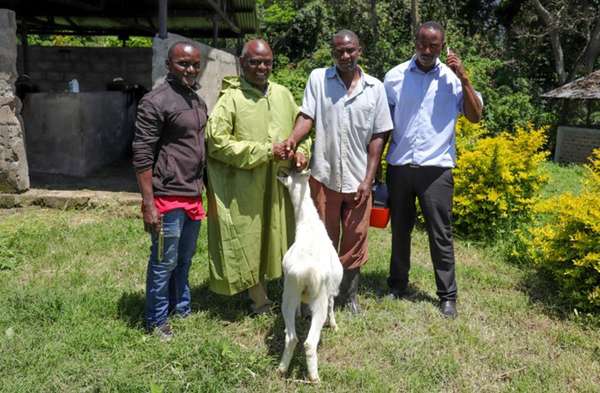Through the existing strong relationship between ECHO East Africa and Bothar Ireland, ECHO East Africa has been able to implement projects of distributing dairy goats in the districts of Karatu and Arumeru in Arusha and Morogoro in Southeast Tanzania. The objectives of this project are to assist families with low income to improve their diets and earn an income as well as to sustain their surrounding environment. This project is implemented through the provision of dairy goats, trainings, follow up and technical support to more than 200 smallscale farmers. In this project, farmers are given a chance to build their capacity and involve themselves as ECHO East Africa partners in other related matters like project sustainability, strategic planning, inputs and service supply, marketing and gender and family cooperation awareness and provide for information exchange and networking between farmers, partners, NGO’s and government offices.
This project promotes food security and environmental improvement by assisting low income families with zero-grazed dairy goats in those targeted areas of the project. The project has enabled affected small-scale households to get milk and the sale of goat offspring provides a means to short term economic improvements. Passing on dairy goats has started to provide means of expansion to new farmers who have never owned dairy goats but with the strong need and desire to do so.

Figure 1. Charles Bonaventure; ECHO East Africa Technical Advisor in a picture with beneficiaries of a dairy goat when he visited the household for follow up.
Prior to the small-scale farmer being provided with a dairy goat, they are equipped with training on how to care for the dairy goats, how to grow fodder crops to feed their goats and other best practices that promote food security to make the dairy goat project a success. With the establishment of contours to prepare a planting base for fodder trees, small-scale farmers were also able to conserve their environment and restore fertility of the soil, which acts as a multifaceted process to improve the lives of the poor people in those targeted areas.
The project has enabled ECHO East Africa to strengthen its partners that work toward enabling small-scale farmers to improve their lives from day to day. The feedback for this project has shown that a number of small-scale farmers have changed their lives by improving food and nutritional security by keeping dairy goats at their households.